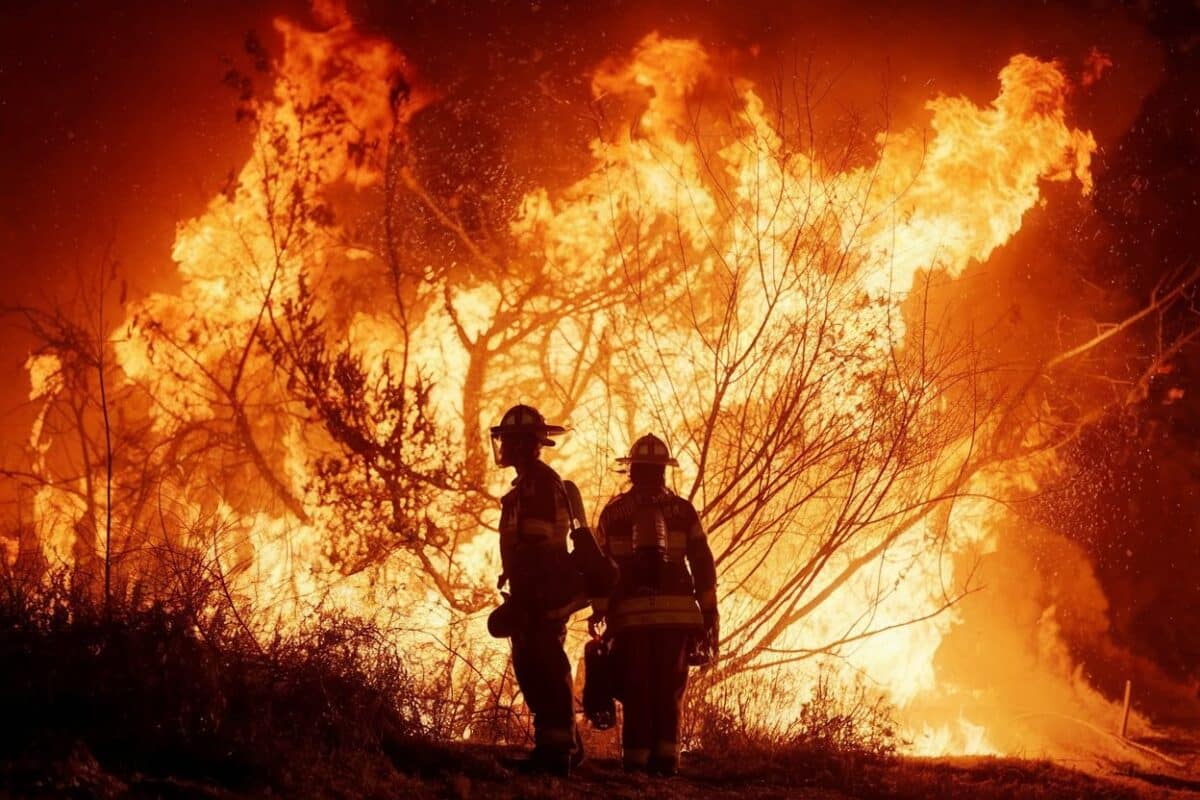Even while Los Angeles’s richness and variety of businesses provide a basis for resilience, the wildfires have put tremendous strain on the region’s infrastructure, severely disrupted livelihoods, and severely taxed vital supplies. The city’s varied economy, which includes sectors like manufacturing, technology, and entertainment, should offer some protection from the crisis, but the scope of the catastrophe presents hitherto unheard-of difficulties.
Concerns regarding long-term economic recovery, social stability, and the city’s overall financial health have been raised by the fires, which have worsened pre-existing vulnerabilities in housing and employment, with insured losses already estimated at $30 billion. Both residents and policymakers must make difficult choices as they move forward.
Unprecedented Economic Fallout in an Urban Hub
Unlike previous wildfires that primarily struck rural areas, the Los Angeles conflagration has ravaged high-value urban neighborhoods such as Pacific Palisades. The destruction of 12,000 structures, including homes valued in the millions, has driven insured losses to historic levels. However, gaps in coverage remain a pressing issue, with many homeowners underinsured or excluded from policies.
The fires have also disrupted employment across multiple sectors. According to preliminary data, working hours in impacted areas decreased by 57% in the first week, with 15,000–25,000 jobs potentially lost. As consumer demand declines in regions that depend on tourism and local spending, the city’s dependence on the leisure and hospitality sectors intensifies the economic impact.
“It looks a lot more like the humanitarian situation from a flood or a hurricane than a wildfire that people are watching in the hills,” said Amir Jina, assistant professor at the University of Chicago, emphasising the humanitarian and economic complexity of the situation. Infrastructure damage compounds the crisis. Essential systems, including power lines and water infrastructure, require extensive repairs, raising concerns about funding and equitable distribution of recovery resources.
Housing Crisis Deepens Amid Rising Insurance Costs
The fires have intensified Los Angeles’s existing housing challenges, displacing thousands and driving rental prices higher in an already constrained market. With few vacant homes available, competition for housing is expected to surge, disproportionately affecting lower-income residents.
Property insurance has become a crucial concern. Many homeowners are being priced out of coverage by rising rates and policy exclusions in high-risk locations. Experts caution that this pattern may depress property values and compel localities to bear the financial burden of calamities in the future.
“I’m not sure there’s enough money to go around. Communities haven’t figured out how to pay for this.” said Margaret Walls, director of the Climate Risks and Resilience Program at Resources for the Future. She advocates for stronger hazard mitigation measures, such as fire-resistant construction and community-wide safety improvements.
Local policymakers are under pressure to enact long-term solutions, including denser, affordable housing developments in safer areas. Recovery efforts must also address systemic inequities to prevent the displacement of vulnerable populations and ensure a sustainable path forward.









